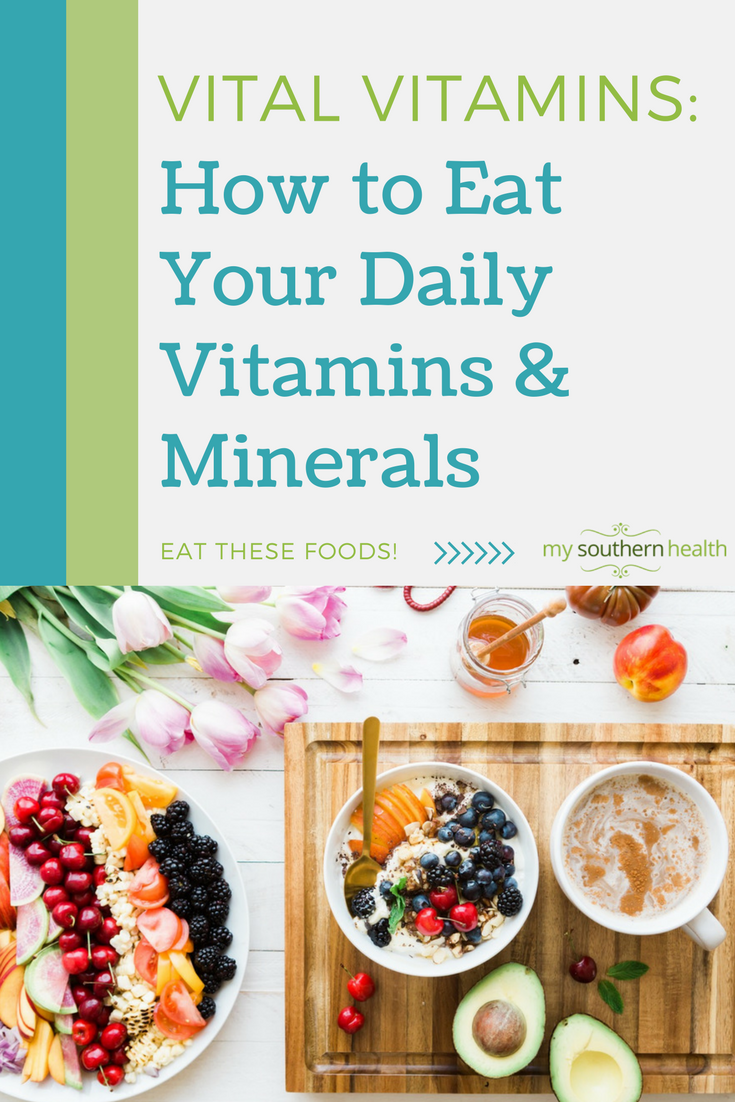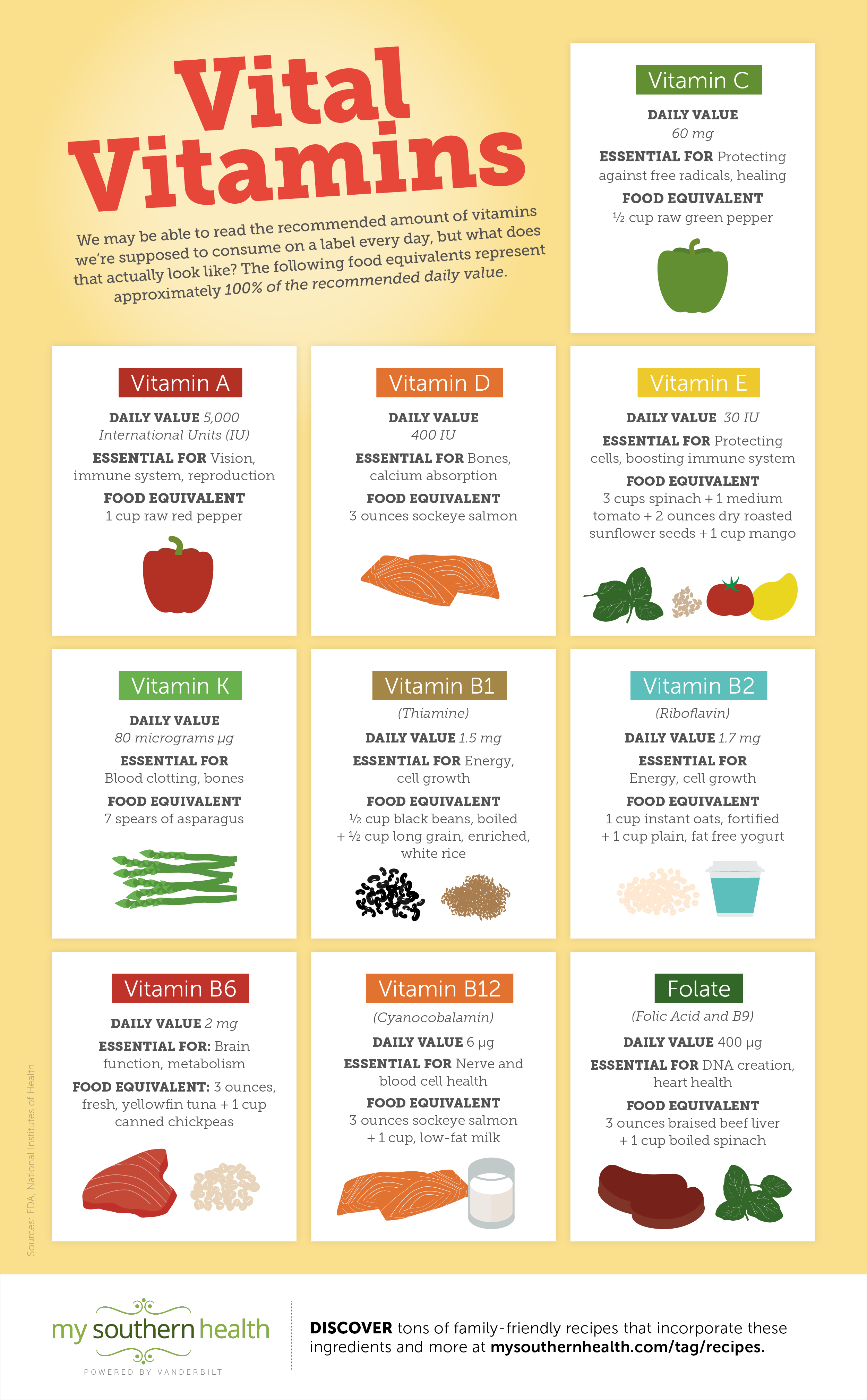Ever wondered what you’d have to eat to get your daily amount of vitamin A in a meal? We illustrate how to get vitamins and minerals through the food you eat.
Though the morning chewables may be tasty, to get the recommended amount of vitamins and minerals every day, you might be better off skipping the supplement and planning your meals accordingly.
The American Academy of Family Physicians says that getting micronutrients through food instead of a multivitamin ensures that your body is able to absorb them properly. This is especially helpful for vegetarians and women who are pregnant or trying to get pregnant.
The National Institutes of Health recommends the following food choices as another source of these important micronutrients:
Vitamin A Foods:
- Dark-colored fruit
- Dark leafy vegetables
- Egg yolk
- Liver, beef, fish
Foods Containing Vitamin D:
- Fish (fatty fish such as salmon, mackerel, herring, orange roughy)
- Fortified cereals
- Fortified milk and dairy products (cheese, yogurt, butter, cream)
Food Sources of Vitamin E:
- Avocado
- Dark green vegetables (spinach, broccoli, asparagus, turnip greens)
- Oils (safflower, corn, sunflower)
- Papaya, mango
Foods with Vitamin K:
- Cabbage
- Cauliflower
- Dark green vegetables (broccoli, Brussels sprouts and asparagus)
- Fish, liver, beef, eggs
Foods with Biotin:
- Egg yolks
- Legumes
- Milk
- Nuts
Foods with Folate:
- Asparagus, broccoli
- Beets
- Dried beans (cooked pinto, navy, kidney, lima)
- Peanut butter
Sources of Vitamin B1:
- Egg
- Lean meats
- Nuts and seeds
- Peas
Vitamin B6 Foods:
- Avocado
- Banana
- Nuts
- Poultry
Vitamin B12 Foods:
- Meat
- Eggs
- Organ meats (liver, kidney)
- Poultry
Foods with Vitamin B2:
- Dairy products
- Eggs
- Green leafy vegetables
- Lean meats
Hummus with a side of vegetable sticks can be a great snack full of nutrients. Check out three twists on the traditional hummus recipe here.


